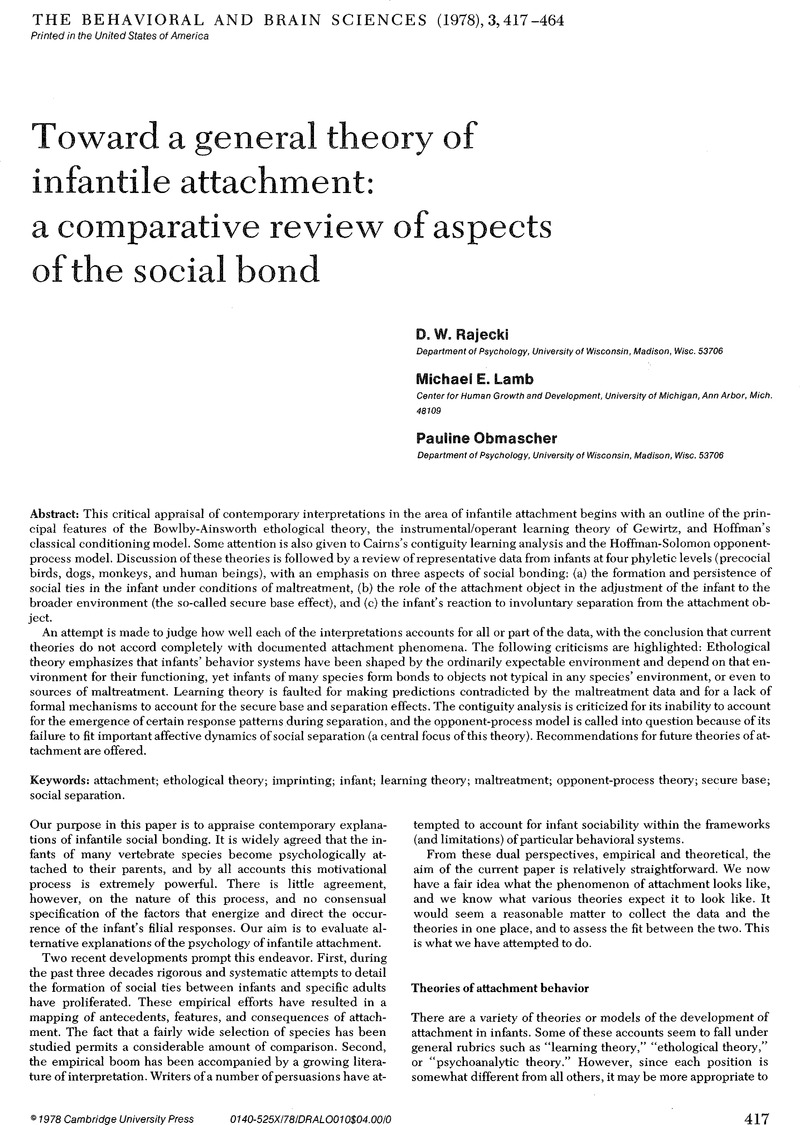Crossref Citations
This article has been cited by the following publications. This list is generated based on data provided by Crossref.
Main, Mary
1979.
The ultimate causation of some infant attachment phenomena: further answers, further phenomena, and further questions.
Behavioral and Brain Sciences,
Vol. 2,
Issue. 4,
p.
640.
Bindra, Dalbir
1979.
What next? A perceptual-motivational approach to attachment.
Behavioral and Brain Sciences,
Vol. 2,
Issue. 4,
p.
636.
Baerends, Gerard P.
1979.
Programmed development.
Behavioral and Brain Sciences,
Vol. 2,
Issue. 4,
p.
635.
Weinraub, Marsha
1979.
Separation distress in human infants: A multifaceted, muitidetermined response.
Behavioral and Brain Sciences,
Vol. 2,
Issue. 4,
p.
643.
Kramer, Douglas A.
and
McKinney, William T.
1979.
Ethology: the natural model.
Behavioral and Brain Sciences,
Vol. 2,
Issue. 4,
p.
639.
Lewis, Michael
1979.
Cognitive factors in attachment.
Behavioral and Brain Sciences,
Vol. 2,
Issue. 4,
p.
640.
Greenberg, Gary
1979.
Approach/withdrawal theory and infantile social bonding.
Behavioral and Brain Sciences,
Vol. 2,
Issue. 4,
p.
638.
Bowlby, John
1979.
The Bowlby-Ainsworth attachment theory.
Behavioral and Brain Sciences,
Vol. 2,
Issue. 4,
p.
637.
Bornstein, Marc H.
1979.
Two questions for a general theory of infantile attachment.
Behavioral and Brain Sciences,
Vol. 2,
Issue. 4,
p.
636.
Rajecki, D. W.
and
Lamb, Michael E.
1979.
Infant attachment: some final thoughts about theory and method.
Behavioral and Brain Sciences,
Vol. 2,
Issue. 4,
p.
644.



